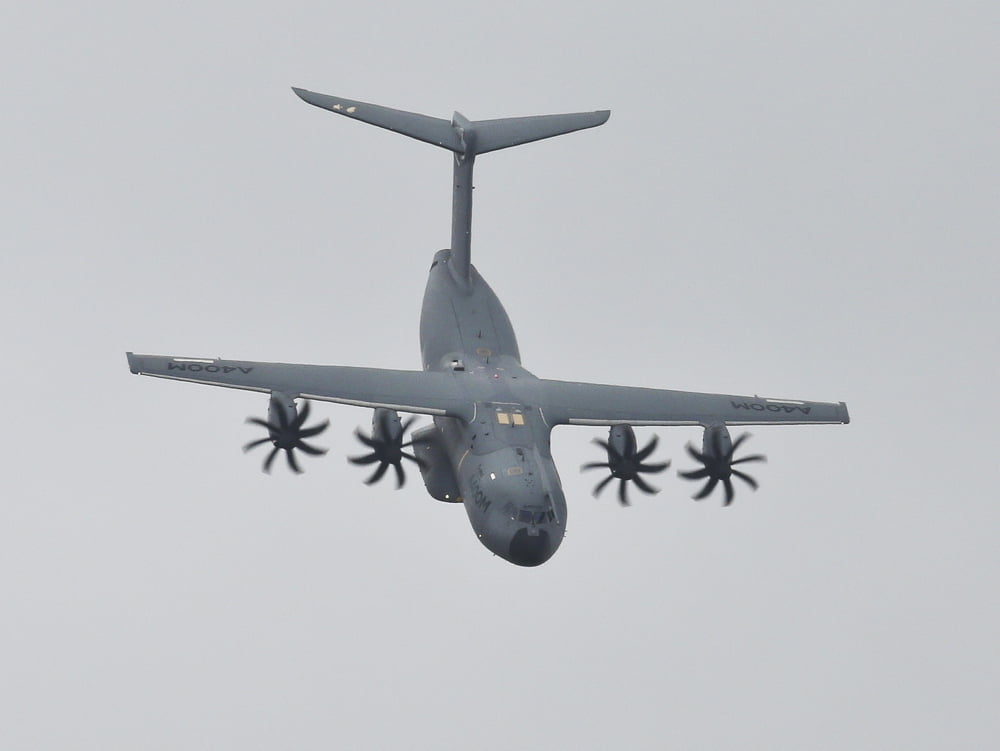By Pierre Tran
Paris, France
Germany’s suspension of arms exports to Saudi Arabia led to a continued financial hit for Airbus, which reported July 31 a charge of €208 million ($232 million) in first-half results.
That charge comprised a charge of €18 million in the second quarter after a charge of €190 million in the first quarter, the European aircraft builder said in financial results.
Berlin earlier this year extended to September its six-month ban on weapons exports to Riyad, to protest against the slaying of Saudi journalist Jamal Khashoggi.
London and Paris have criticized that German sanction, as the Berlin ban has held up delivery of British and French weapons which rely on German parts.
Meanwhile, the Airbus Defence and Space (ADS) division said Julian Whitehead would take up the post of executive vice president for global business and strategic programs on Oct. 1. Whitehead is executive VP for finance and sits on the executive committee at the division.
That appointment was significant in view of the work on the Future Combat Air System and a European medium-altitude, long-endurance drone, Dirk Hoke, Airbus DS chief executive, said in a statement.
The first-half charge of €208 million on the German arms freeze was what Airbus dubbed an “adjustment” and led to an adjusted operating profit of €2.5 billion, up 118 percent from a year ago.
Other charges included €138 million for closing down production of the A380 super jumbo and €90 million of other costs, including compliance. The latter covers an internal inquiry into the use of middlemen for aircraft and other sales, Reuters reported.
Airbus Defence and Space reported a 25 percent fall in adjusted operating profit to €233 million from €309 million, reflecting investment in sales campaigns. Sales of the division rose eight percent to €5 billion, boosted by military aircraft.
That compares to total Airbus revenue of €30.9 billion, up 24 percent, helped by airliner sales.
ADS won a 33 percent rise in orders worth €4.2 billion compared to €3.2 billion, including a contract signed with the OCCAR procurement agency for service of the A400M airlifter in global support step 2, and a next-generation communications satellite on the Ka-band.
Orders for the helicopter division included Spanish procurement of 23 NH90 military transport helicopters. That deal led to net orders of 123 units, down from 143 a year ago.
The helicopter division reported adjusted operating profit of €125 million, down seven percent, on sales of €2.4 billion, down one percent.
On the A400M military airlifter, Airbus signed in the second quarter a contract amendment with OCCAR, a deal which took two years of negotiations. Airbus last year booked a further €436 million of charge, following a total of €7.2 billion of previous charges on the A400M.
The A400M contract agreement, dubbed global rebaselining, set new terms for a development plan for capabilities, new production delivery schedule, new timetable for retrofit and new financial terms.
In the financial terms, Airbus and OCCAR agreed “significant compensation in products and services” in exchange for dropping penalties for late delivery, the company said June 14.
In comparison, Boeing reported July 24 a loss of $2.9 billion in the second quarter, compared to profit of $2.2 billion a year ago. That loss was due to a grounding of the 737 Max airliner after two deadly crashes.
That quarterly loss followed a charge of $4.9 billion due to slower production of the troubled passenger jet, delayed delivery and related costs.
The featured photo shows an Airbus A400M during the Royal International Air Tattoo at RAF Fairford in 2016.
Credit: Australian Department of Defence


